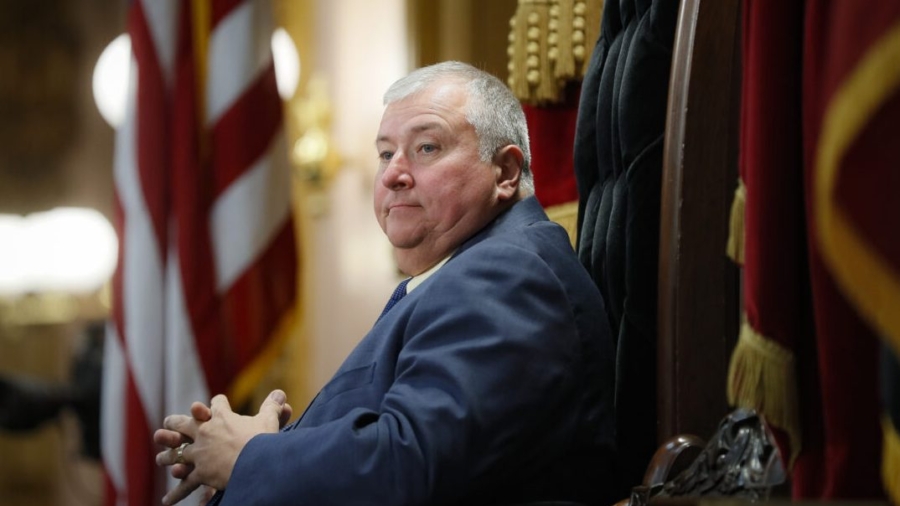Ohio House Speaker Larry Householder and four others were arrested and charged Tuesday for their alleged involvement in what a U.S. attorney described as the largest bribery and money laundering ever perpetrated against the state.
U. S. Attorney for the Southern District of Ohio David DeViller told reporters at a press conference that the five defendants passed and maintained a $1.5 billion bailout in return for $61 million in dark money.
That money was used to line the pockets of the defendants, to build Householder a power base, and to further the conspiracy.
“These allegations are bribery, pure and simple. This was a quid pro quo; this was a pay-to-play,” DeViller said.
Some of the funds were filtered through different enterprises owned or controlled by the defendants to get Householder the post of speaker, authorities said. Householder is a Republican.
The others charged included former Ohio Republican Party chair Matthew Borges, Juan Cespedes, co-founder of The Oxley Group, and Neil Clark, founder of Grant Street Consultants.
The fourth was Jeffrey Longstreth, an advisor to Householder.
Borges recently started a political action committee that is trying to convince Republican voters to support Democratic presidential candidates.
Generation Now, a 501 (c)(4) entity that Householder allegedly secretly controlled, was also named. According to a criminal complaint, Householder started receiving quarterly $250,000 payments from a company into a bank account in Generation Now’s name.
Payments received by the company helped get Householder elected as House speaker, according to the complaint.
Householder and his associates then worked on getting House Bill 6 passed and signed by Republican Gov. Mike DeWine. After it passed in May 2019, they worked to combat an effort to organize a statewide referendum that would overturn the legislation.
There is no evidence that the scheme involves the governor’s office, DeViller said.
Chris Hoffman, FBI special agent in charge, told reporters that “rooting out public corruption is extremely difficult” and often requires complex, long-term investigations.
“Today’s announcement comes to a warning, from the city council to the statehouse: all forms of public corruption are unacceptable,” he added.
From The Epoch Times


